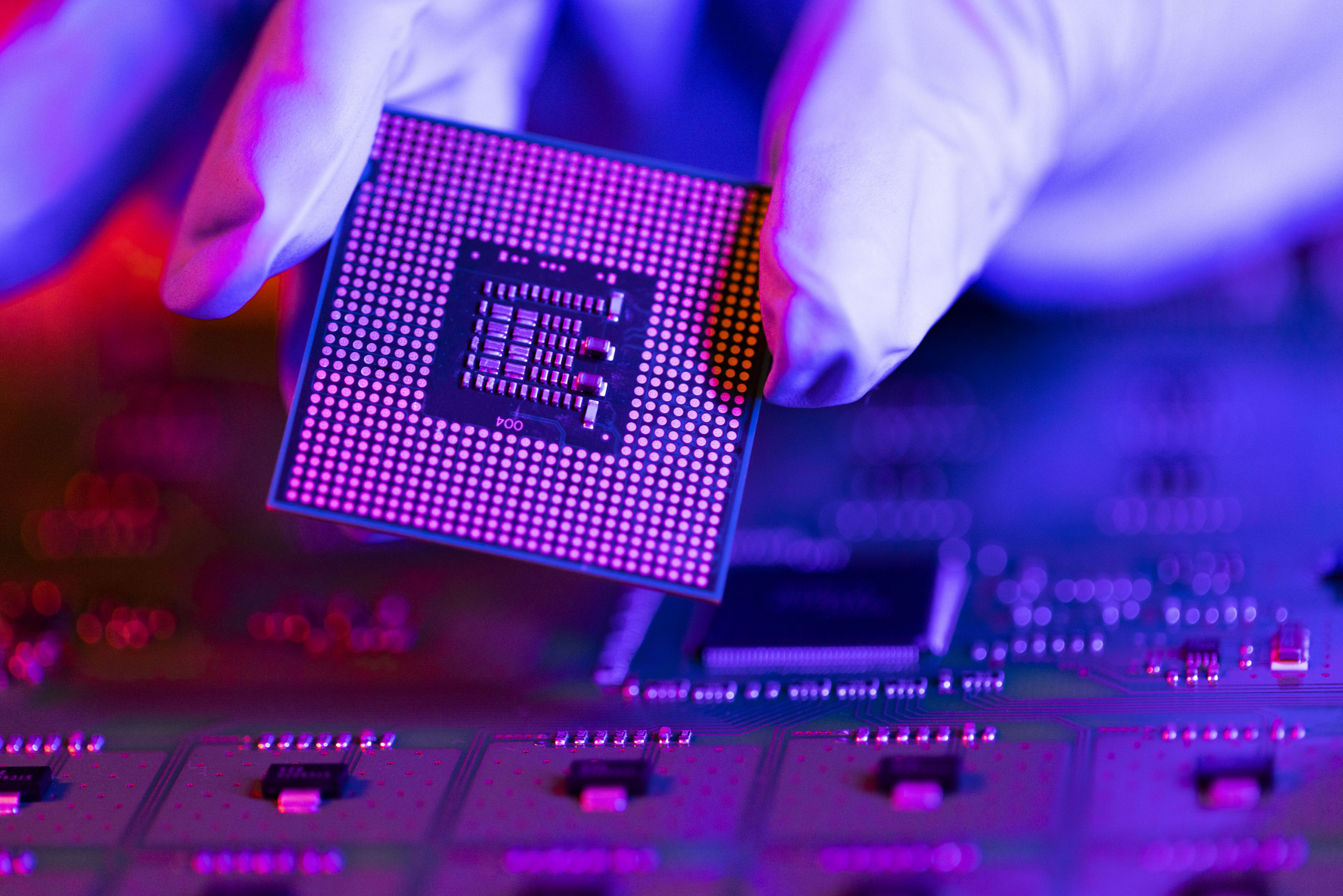The saga is over. After over two years of intense legal battles spanning the world, Apple (AAPL +0.00%) and Qualcomm (QCOM 2.03%) have announced a surprise settlement that dismisses "all litigation between the two companies worldwide," including the Apple contract manufacturers that had been roped into the dispute. The stunning development comes just as the companies were beginning their trial, which included one of Apple's attorneys making a bizarre fried chicken analogy earlier today as part of opening arguments.
Qualcomm shares surged on the news, closing out the day up 23%, while Apple stock was mostly unchanged. That's understandable, as the litigation was always much more of an overhang for Qualcomm than Apple.

Image source: Getty Images.
Friends again?
The companies didn't disclose a whole lot of detail regarding the settlement, other than saying it "includes a payment from Apple to Qualcomm." The pair also signed a six-year licensing agreement that can be extended by two years, as well as a multiyear chipset supply agreement.
Chip supply was at the heart of the battle, as Qualcomm's "no license, no chips" policy is considered anticompetitive by many regulators the world over -- including the U.S. Federal Trade Commission. That separate case wrapped up months ago but is still awaiting a final verdict from federal Judge Lucy Koh. Apple had started buying modems from Intel (INTC 5.25%) in 2016, immediately after its exclusive chip supply agreement with Qualcomm expired.
The settlement is surprising considering how acrimonious the situation was getting. During the FTC trial, Apple Chief Operating Officer Jeff Williams likened Qualcomm's tactics to having "a gun to our head." Williams also testified that Apple had originally planned on buying modems from Qualcomm in 2018 as part of its dual-sourcing strategy, but Qualcomm declined. In January, CEO Tim Cook said that there had been no settlement negotiations in months while renewing his attacks on Qualcomm. Cook previously called the fight a "principled stand."
Shortly after the litigation commenced, Qualcomm CEO Steve Mollenkopf had expressed optimism that the companies would be able to reach a settlement.
To 5G, or not to 5G -- that is the question
Intel shares fell on the announcement, giving up virtually all of the day's gains. Apple has single-handedly propped up Intel's relatively nascent modem business, which has seen modem revenue skyrocket due to the spat. Apple has been increasingly relying on Intel as its primary modem supplier, an arrangement that is now being undermined by the new chip supply agreement between Apple and Qualcomm.

Image source: Getty Images.
It's also quite possible that Intel's road map for 5G modems was a factor. It's been widely reported that Apple will be late to 5G, with a 5G-capable iPhone not expected until 2020 even as competing Android devices are already shipping with 5G support -- thanks to Qualcomm modems inside. But Intel's development has been rocky and has missed numerous deadlines, according to a recent report from Fast Company. Apple has "lost confidence in Intel to deliver the chip," according to that report's anonymous sources.
It's probably too late in the development cycle for Qualcomm's 5G modems to be incorporated into 2019 iPhones, so the timeline for that device is likely still unchanged. However, Qualcomm has always been a leader from a technological standpoint -- the company is already sampling its second-generation 5G modem ahead of late-2019 product launches -- and the settlement could reduce supply risks around the 5G iPhone.




